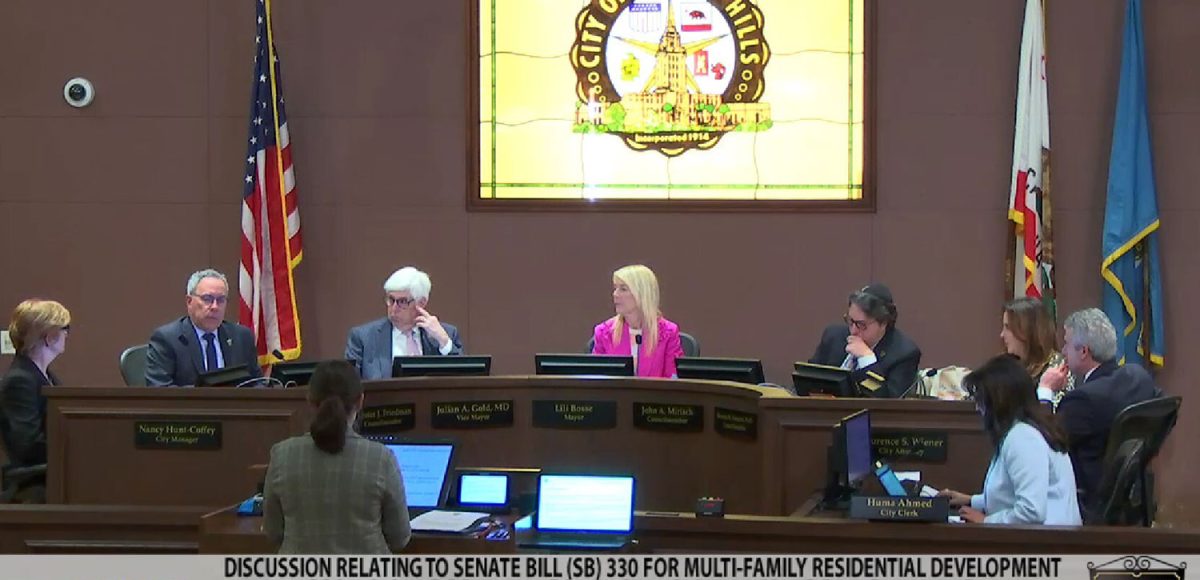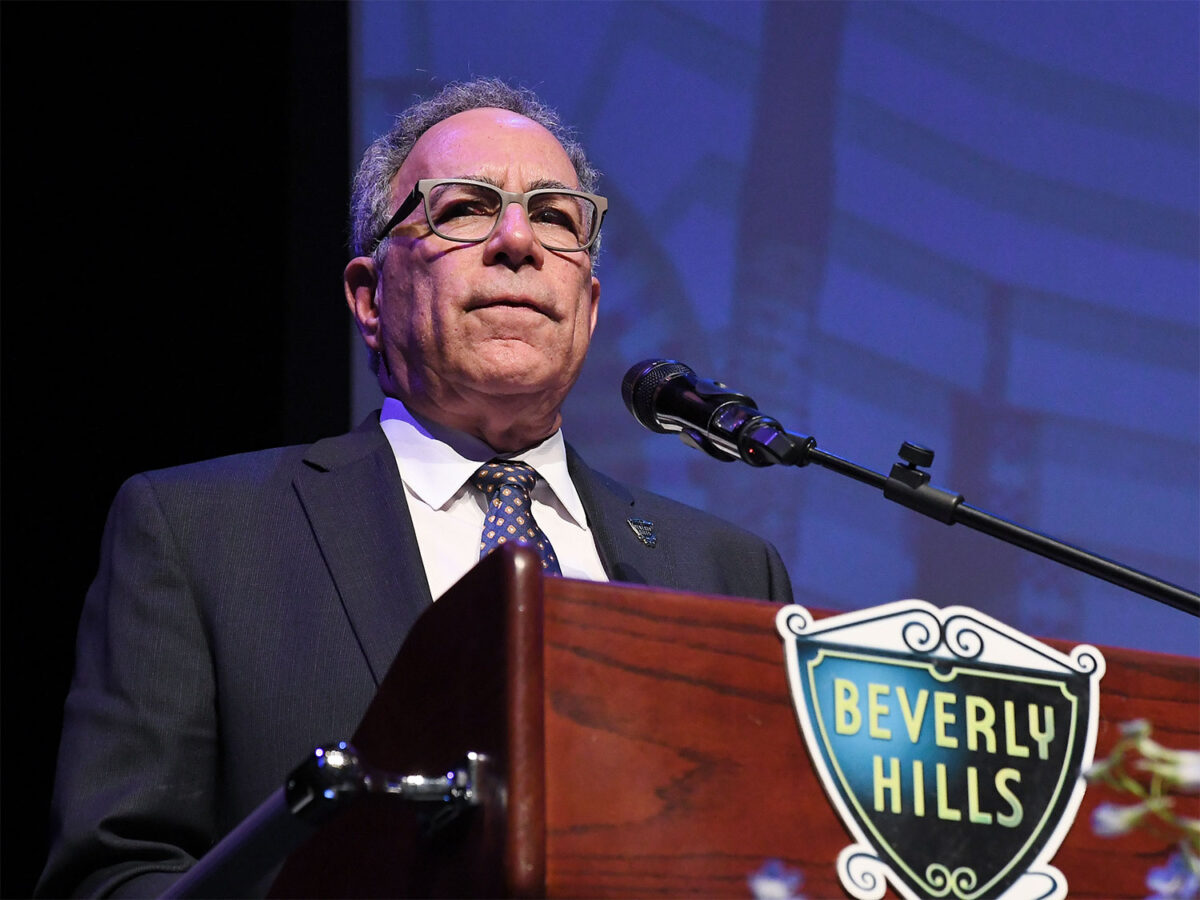The Beverly Hills City Council covered an array of topics in this week’s Study Session including the option to add more affordability restrictions to housing bill SB 330, Jewish American Heritage Month and the allocation of additional city funds to the Fire and Public Works departments.
Adding Restrictions to SB 330
A flurry of pro-housing legislation has come out of Sacramento in recent years including SB 330, which is also known as the “Housing Crisis Act of 2019.” This bill was passed to help Governor Newsom reach his goal of producing 3.5 million new housing units statewide by 2025.
The bill includes several different provisions that suspend restrictions on development, incentivize affordable housing and expedite project approvals.
The provision Council focused on is a requirement for new housing developments to include deed-restricted affordable units in certain scenarios.
The rules for doing so are complicated and depend on several factors. However, the general rule is that demolished rent controlled units that were formerly occupied by low-income tenants must be replaced by an equivalent number of deed-restricted affordable units, according to the staff report.
Council has the option to impose further restrictions such as requiring that a certain number of units be made affordable regardless of the former tenants’ income levels or requiring that some units are subject to the city’s Rent Stabilization Ordinance.
While councilmembers expressed support for preserving affordable housing, they are worried that adding more restrictions would hinder the ability for developers to create new housing.
“We all know that there’s a housing shortage and tenant protection is our goal,” said Councilmember Sharona Nazarian. “With that said, I’m very torn; I feel that there are currently so many restrictions on developers. We have an aging housing market and the more difficult we make it (to build new buildings) the more we will need to deal with disrepair or lack of upkeep.”
Councilmember John Mirisch was the sole member interested in adding additional requirements for developers to include affordable and/or rent controlled units in new buildings.
“If we care more about our residents and if we care more about the ability to have a diverse population who live in our city and not just rich people, then we really need to focus on affordable housing,” he said.
After a robust discussion, the Council voted to table the discussion and requested that staff return in six to eight months with information on cities that have imposed additional SB 330 requirements and on income levels of rent-control tenants in Beverly Hills.
Jewish American Heritage Month
The City Council leapt at the opportunity to begin planning for Jewish American Heritage month in May and excitedly discussed a mix of celebratory, cultural and educational events.
“I think we should have a rugelach baking contest,” said Gold.
“How about a rugelach eating contest!” said Mayor Lili Bosse, adding that she’d also be interested in a contest to find Beverly Hills’ best challah or babka baker.
The month is especially important to the Beverly Hills community, due to both its significant Jewish population and Council’s reputation for speaking out against antisemitism of all forms.
“It’s shocking to think that 0.2% of the world is Jewish and yet there’s so much antisemitism,” said Nazarian. “I would also like to recommend that we collaborate with our schools. The children are the foundation of what is going to be the future and who we need to educate.”
Gold said that he is proud of the city’s firm stance against antisemitism but wants to make sure that this month is not just a time to talk about Jewish persecution, but also an opportunity for cultural celebration.
“I’d really like it to be positive,” he said. “It’s not only about antisemitism. It’s really about celebrating Jewish culture and heritage.”
Gold also expressed a desire to involve other local religious leaders in the month, so it’s a community-wide event and not just “Jewish people saying nice things about other Jewish people.”
Other events discussed included book talks at the library, musical performances at the Farmers Market and a Critical Conversation event in collaboration with the Human Relations Commission.
More Funding for Fire and Public Works Departments
The Council concluded the study session with a brief mid-year update on the city’s finances and approved requests for funding bumps to the Fire Department and Public Works Department.
Public Works requested the addition of two technicians to ensure proper maintenance of the City’s fiber network, street cameras, traffic signals and street lighting. The Fire Department requested $324,000 for various uses including background checks for new recruits, wildland fire modeling and mental health services for staff.
Council thought both investments were important and unanimously approved immediate allocation of the funds.
The financial update showed healthy and growing revenue streams for the city. The city’s four biggest income sources property tax, hotel tax, sales tax and business license tax were up by $10.2 million, reflecting an 12.8% increase, compared to a year ago.
“It looks like we are certainly well on our way to recovery,” said Mirisch. “I think the conservative planning that we’ve had and we continue to have is appropriate.”







